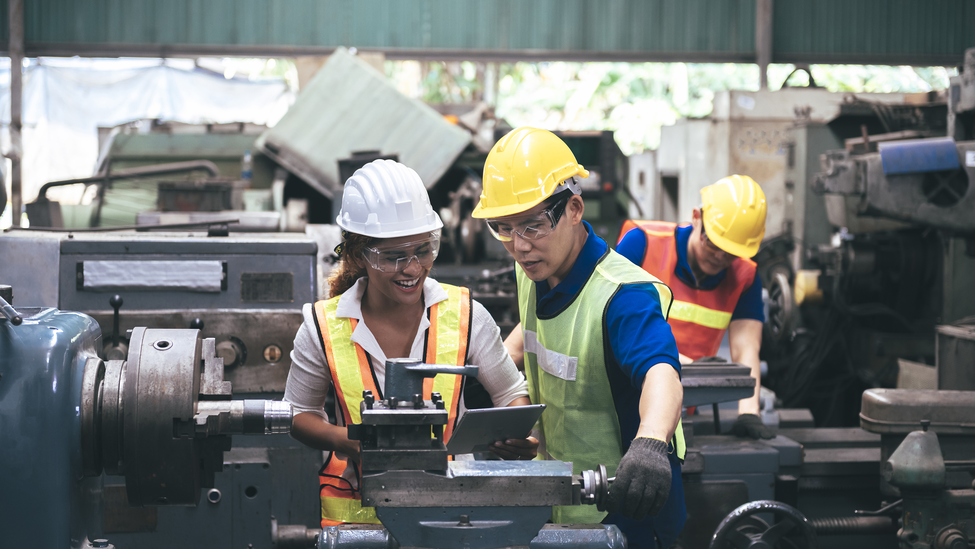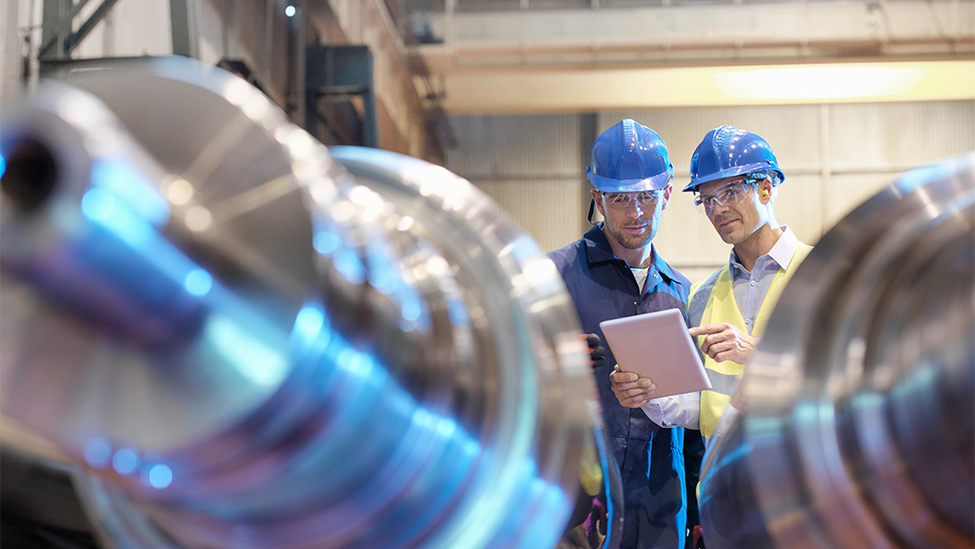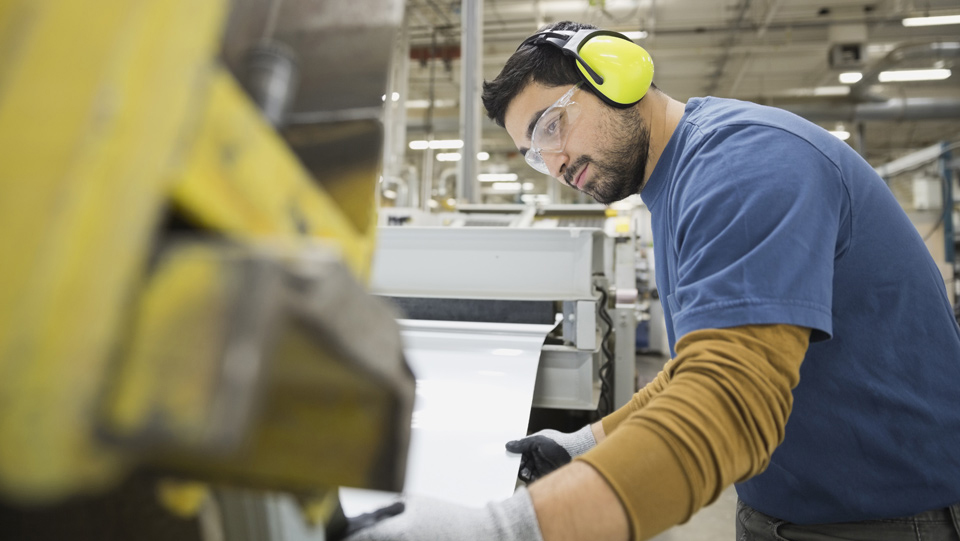Ergonomics: A Key Component of Workplace Safety


Integrating ergonomics into the design of workstations and workflows can help minimize the risk of musculoskeletal disorders, leading to fewer sprains and strains.1 This proactive approach can help manufacturers maximize worker safety and minimize the financial impact of injuries.
42%
Overexertion and repetitive motions are among the most common causes of injury in manufacturing.2
54
The average number of lost workdays due to sprains and strains.2
Key safety questions for manufacturers
Workstations and surroundings
- Are work surfaces adjustable to accommodate different tasks and work heights?
- Are tools and materials within easy reach to prevent overreaching and awkward postures?
- Is seating adjustable and does it have lumbar support for tasks that can be performed sitting?
- Is there adequate lighting to minimize eyestrain and encourage neutral postures?
- Are measures in place to minimize exposure to noise, vibration and heat stress?
Equipment
- Are tools and fixtures designed to encourage the use of neutral postures and reduce the need to use force?
- Are handles designed with comfortable grips?
- Are controls easy to operate, even with protective gloves?
- Are displays easy to read?
- Is personal protective equipment (PPE) available to help reduce exposure to hazards?
Manual material handling: assembly, lifting, loading, pushing, pulling
- Have loads been minimized to reduce the force required in manual lifts?
- Are lifting aids and equipment such as hoists, conveyors, carts and forklifts used and on preventive maintenance schedules?
- Have long-term solutions been found for moving heavy products that usually need two people?
- Are floors dry, level and free from obstacles and debris to reduce pushing and pulling forces for carts and support ease of stopping?
Repetitive tasks
- Have tasks been evaluated for ways to reduce repetition?
- Are workers encouraged to take regular breaks?
Feedback mechanism
- Do new workplace designs incorporate sound ergonomic principles and address existing injury risks?
- Is there a system in place for employees to report uncomfortable working conditions or potential ergonomic issues?
- Is worker feedback used to improve the ergonomic conditions in the workplace?
Learn more about Travelers ergonomics consulting services, workers compensation insurance and manufacturing insurance.
Contact an independent agent today to find out more about how Travelers can help strengthen your manufacturing business against the variety of risks it faces.
Sources:
1 https://www.osha.gov/ergonomics
2 2024 Travelers Injury Impact Report



